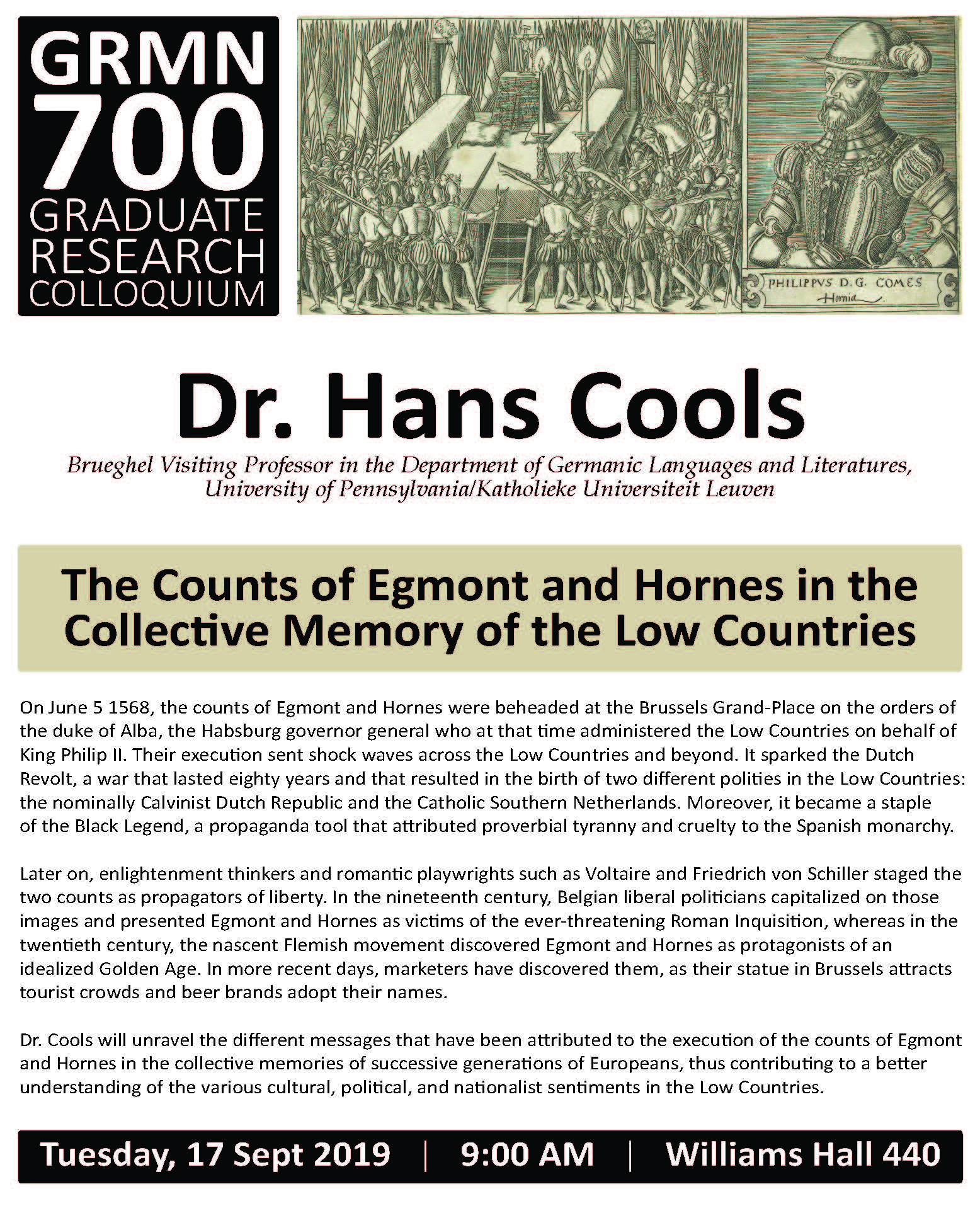Dr. Hans Cools
440 Williams Hall (Language Resource Center)

Please join us for our first session of our GRMN 700-301 Graduate Research Colloquium at 9:00 am – 10:15 am on Tuesday, September 17th.We will meet in 440 Williams Hall (Language Resource Center). Dr. Hans Cools, Brueghel Visiting Professor in the Department of Germanic Languages and Literatures, University of Pennsylvania/Katholieke Universiteit Leuven. The Counts of Egmont and Hornes in the Collective Memory of the Low Countries: On June 5 1568, the counts of Egmont and Hornes were beheaded at the Brussels Grand-Place on the orders of the duke of Alba, the Habsburg governor general who at that time administered the Low Countries on behalf ofKing Philip II. Their execution sent shock waves across the Low Countries and beyond. It sparked the DutchRevolt, a war that lasted eighty years and that resulted in the birth of two different polities in the Low Countries:the nominally Calvinist Dutch Republic and the Catholic Southern Netherlands. Moreover, it became a stapleof the Black Legend, a propaganda tool that attributed proverbial tyranny and cruelty to the Spanish monarchy.Later on, enlightenment thinkers and romantic playwrights such as Voltaire and Friedrich von Schiller staged thetwo counts as propagators of liberty. In the nineteenth century, Belgian liberal politicians capitalized on thoseimages and presented Egmont and Hornes as victims of the ever-threatening Roman Inquisition, whereas in thetwentieth century, the nascent Flemish movement discovered Egmont and Hornes as protagonists of anidealized Golden Age. In more recent days, marketers have discovered them, as their statue in Brussels attractstourist crowds and beer brands adopt their names. Dr. Cools will unravel the different messages that have been attributed to the execution of the counts of Egmontand Hornes in the collective memories of successive generations of Europeans, thus contributing to a betterunderstanding of the various cultural, political, and nationalist sentiments in the Low Countries.

 Germanic Languages and Literatures
Germanic Languages and Literatures